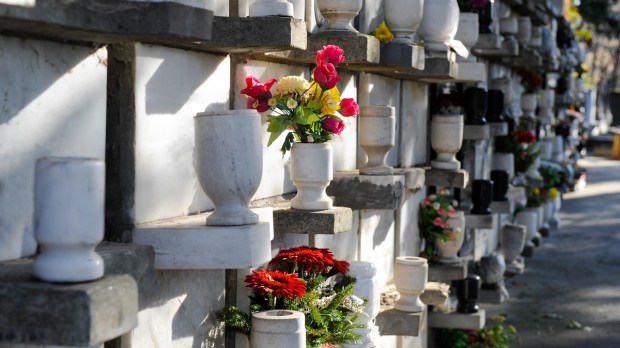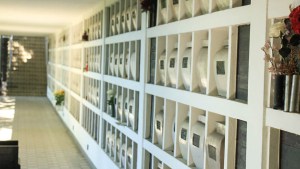Lenten Campaign 2025
This content is free of charge, as are all our articles.
Support us with a donation that is tax-deductible and enable us to continue to reach millions of readers.
It is traditional for a deceased Catholic to be buried in the ground or interred in a tomb or mausoleum. While the Catholic Church does allow for cremation, it comes with some requirements – like that the remains must still be buried or inurned in a columbarium – and strictly restricts the scattering of the ashes. There is a newer method of cremation, however, that uses an alkaline water mix that completely dissolves biological materials, and bishops are warning it is not suitable for Catholics.
The process is known as alkaline hydrolysis, aquamation, or “water cremation,” and it is a legal form of burial in 24 states, with seven more currently considering its legalization. According to the Cremation Association of North America, the process entails placing the body of the deceased within a sealed chamber, where an acidic watery mix breaks down the body while being pressurized and heated.
The process is said to have a lower carbon footprint than normal cremation and leaves behind more remains – in the form of bones, which must be pulverized to dust – which would require a larger urn. The biological remains dissolved into the fluid, however, are simply disposed of in the local wastewater treatment, or even used for fertilizer, and this is where the Catholic Church has a real problem with the process.
The Catholic Church insists that human remains be treated with respect to protect the dignity of the deceased, just the same as when they were alive. The Catechism of the Catholic Church teaches: “bodies of the dead must be treated with respect and charity, in faith and hope of the Resurrection. The burial of the dead is a corporal work of mercy, it honors the children of God who are temples of the Holy Spirit.”
While the Vatican has yet to weigh in on water cremations, US bishops have offered guidance to the faithful. According to the Archdiocese of St. Louis, former Washington Archbishop Donald Cardinal Wuerl called the means of disposal associated with water cremations “unnecessarily disrespectful of the human body.”
The Archdiocese of St. Louis too deemed the method inappropriate for Catholics. Recently retired Archbishop Robert J. Carlson concluded that “this form of cremation in its current practice violates the dignity of the deceased human person.” The archdiocese went on to caution Catholics to avoid water cremations “until another suitable means of disposing of the liquid remnant can be established.”
In 2019, the Texas Conference of Catholic Bishops wrote of water cremations:
“Treating the dead with respect is a duty of the living and a right of the dead and this bill fails to treat the dead with respect. Proponents of alkaline hydrolysis claim that the result is similar to that of cremation with some remains of bones able to be buried. What they fail to explain is that there is also a large volume of liquid, approximately 100 gallons, in which the rest of the body has been dissolved. Usually the liquid is poured into the sewer.”
The Texas bishops went on to question if the process really was more eco-friendly, as the remains and chemicals used to disolve them are all sent into the sewer. They also noted that, although water cremations are cheaper, “Respect and reverence for human bodies must not be sacrificed for a cheaper, quicker disposition for medical research facilities.”


